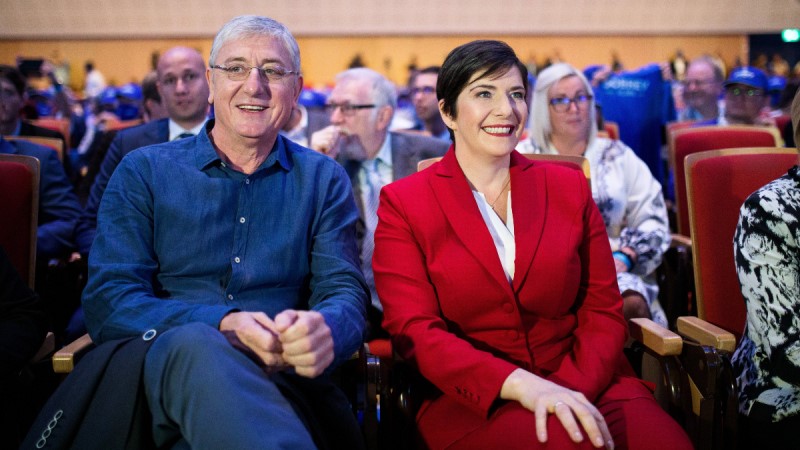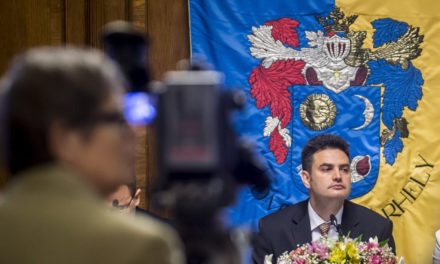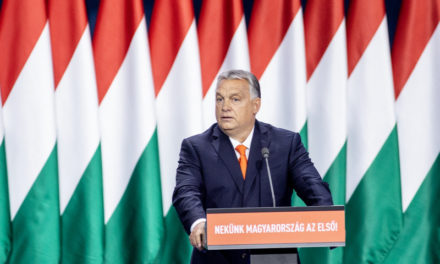We remember. Once again, we remember those who gave their lives for Hungarian freedom, who bravely faced the murderous communist regime, who fought a hopeless battle against the Soviet war machine. We remember the martyrs of 1956 - and also the rampage of a dictatorship 50 years later.
Some people think that this day is empty, it was a long time ago, let's forget about it. And there are still people - I mean the bigoted communists - who still talk about counter-revolution and fight as fascist mobs instead of revolutionaries. There is no need to convince them, the red fog is so thick in front of their eyes that even the most obvious facts cannot dispel it. They deny that a bloody communist dictatorship was raging in the country, that the ÁVH, just like the Gestapo, murdered, tortured and beat people to death. In their eyes, their comrade Rákosi is still the father and benefactor of the nation, the vengeful rampage after the suppression of the revolution is their rightful retribution, and the concept trials before and after the revolution are "model examples of socialist legality". But it wouldn't be worth wasting a word on them, the veteran kmchiks, if...
Well, yes, if. Because there is that big HA. If it weren't for those who would still represent the same and the same as their "great predecessors".
I wonder if you have noticed how eerie the similarity between the regime and events of 1956 and 2006 is? Yes, we lived in a dictatorship both in '56 and in 2006, only the latter (although it was largely led by ex-communists and their descendants) was lied to as a democracy. But it's as if the Rákosi people said the same about their own system. Comrade Mátyás, fed up with his own greatness, admired his own genius - wasn't that what his late successor, who was regularly hired, did as well?
What is the difference between the faceless pribék of the ÁVH and Gergényi's rampaging villains without an identification mark? It probably is, but I can't see it.
How did the revolution begin? Peacefully, with a march of university students. Which was banned by Ernő Gerő. How did October 23, 2006 begin? By attacking peaceful (albeit loud) protesters. Not the same, but very similar.
And the consequences? Bloody retaliation from November 1956 - bloody showdown from October 23, 2006. Concept lawsuits in '56 (and 1957 as well) and concept proceedings after October 23, 2006. The only difference between the verdicts without evidence is that no death sentence was passed in 2006, although Gyurcsány's brigades would certainly have gladly applied it if they could, given the events. Rákosi's legal successors also liked (and still like to) to use methods of deterrence.
Speaking of methods. We know that the blood judges "representing the socialist state" were never convicted - and neither were the perpetrators of the terror in Gyurcsány. On the contrary, the blood judges could enjoy a high pension, and those of 2006 enjoyed complete impunity and were even awarded the Gergényi Kapó. We have nothing to do with the fact that the blood judges got away, presumably none of them are alive anymore. But what about the judges in the 2006 cases? What about prosecutors representing false accusations? What about the judges who produce illegal verdicts on an assembly line? Have they ever been held accountable, or can they still sit there on the judge's pulpit, judging the living and the dead?
And what about those who gave the order to run amok? Because Rákosi had to flee to Moscow at the time. However, we could not get rid of Gyurcsány. On the contrary, he - and his wife, Klára Dobrev, who continues the legacy of the Communist Pribék grandfather, Antal Apró - are now freely inciting and attacking their own nation in Brussels (continuing the communist pace, only now they are not fighting in Moscow against the Hungarians) and they have the image of defaming the memory of '56 again , to call the disaffected to the streets on the very day on which they themselves beat up the protesters due to the Ószöd speech - and taking advantage of the opportunity, those trying to return home from the Fidesz celebration. Hitting, cutting, kicking old, young, women, children indiscriminately.
They have not changed a thing, they hate their nation just as much as their communist predecessors did. At most, we can be happy that this hatred was recognized by a significant part of the Hungarian citizens and for the fourth time two-thirds of them were sent to where they sent Fletó according to Gábor Horn's only true and eternal sentence during the 2008 referendum...
We wouldn't send you anywhere else, but you can take the shadow-chair's wife with you. Everyone would be better off.
Author: Jr. György Tóth
(Cover photo: MTI/Tibor Illyés)













